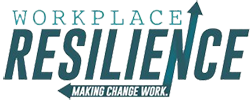
 Recently, I was talking with a friend that had just lost her mother. She was telling me a little about her when I asked her if she had any other siblings in the area.
Recently, I was talking with a friend that had just lost her mother. She was telling me a little about her when I asked her if she had any other siblings in the area.
She told me that she had two siblings that lived in town and two that lived out of town. I did the computation in my head and realized that by today’s standards, she came from a large family.
Are you Catholic, I asked? You have a large family and there are so many of that faith that live in that subdivision.
She laughed and said no. She mentioned that she hears that a lot.
Can we all agree that I just made a JUDGMENT?
I realized it as soon as it came out of my mouth. Without being aware of what I was doing, I put all the available data together and made my assessment. My assessment was incorrect and was based on inconclusive evidence. However, my need to categorize and make sense of the situation was so strong that it drove my behavior.
Why do we do this? Our ancestors were instinctively hard wired for survival. Their ability to assess their environment and search for dangers and risks helped them stay alive. They had to make quick judgments about their environment for adaptation and survival purposes.
However, in today’s world, this skill can cause all kinds of trouble for you. Your need to categorize situations and people encourages judgment calls that can be way off base. When your brain doesn’t have all the necessary information, it automatically fills in the gaps. You have an innate need to quickly make sense of your surroundings.
That’s when your assessment turns out to be incorrect.
The reason I bring this point up is because I believe that making judgments can stand in your way of being happy, productive and successful in your life. You are asked to make judgments in your job, in your everyday life and at home. When you make decisions about people and situations based on your first thought and response, you can be missing out on some great people and outstanding experiences.
You can’t stop your brain from performing this task every time you encounter a situation. What you CAN do is recognize that first thought and assessment and decide whether you want to agree with it or not. Do you need more information? Is there more to this situation than it may seem at first glance?
You can push yourself to be mindful and think it through better before you open your mouth and take action. Now think about how this action can change your life. Maybe you will give that person you are interviewing a second look and not eliminate them based on their dress. Maybe they will turn out to be your absolute best employee ever. What about that guy you see at work that always talks to you? Why not give him a second chance? He doesn’t look or dress like you, but he’s really friendly. The list goes on and on.
So what I’m asking you to do is have the conversation in your head. You will ALWAYS have that first thought, but try to replace it with some good questions and try to call yourself out on your quick judgments.





